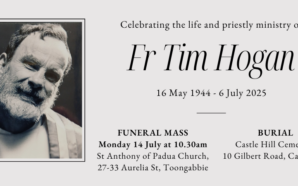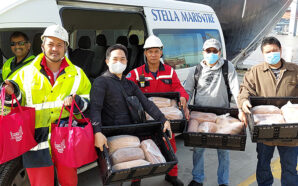This year, the Australian Catholic Bishops’ Conference’s Social Justice Statement 2022-2023 confronts the scourge of violence and abuse, and encourages individuals, organisations and ministries to reflect on the roles they play addressing them.
The need for action is clear; on a daily basis as we see governments, communities and families grapple with responding to domestic violence, elder abuse, and recently, the death of 15-year-old Noongar Yamatji boy Cassius Turvey, beaten to death walking home from school.
The prevalence of violence, is particularly relevant for the Catholic health sector, given the work we do every day.
All too often carers working for Catholic health providers are at the coal face of this scourge, treating and healing as best they can those who have suffered violence, and they are often the victims’ first point of contact. This includes but is not limited to family violence, child sexual abuse, youth violence, elder abuse, criminal violence, and neglect.
For years, Catholic health, by virtue of its mission, has run programs to address the results and causes of community violence, through family shelters, women’s mental health units as well as inclusive health and behavioural change programs. These programs, many inspired by the radical founders in Catholic health, take seriously our vocation as Catholics to always look for those most in need, and prioritise their care.
This requires constant assessment and adaptation, to ensure we are always advocating on behalf of emerging vulnerable demographics.
For instance, the recent Royal Commission into Aged Care Quality and Safety found that more than 39 per cent of people living in Australian aged-care facilities had experienced elder abuse. And that figure does not include financial, social or sexual abuse. Elder abuse can make frail, aged people see their lives as redundant and worthless. And sadly, it reportedly comes mainly from family members.
The Australian Institute of Family Studies reports that it is likely that up to 10 per cent of older Australians experience elder abuse in any given year and that this increases with age. The prevalence of neglect is possibly higher.
From Catholic Health Australia’s perspective, this was only exacerbated by the passing of assisted dying laws in every Australian state, laws that in many instances exist with limited protections against coercion.
CHA and its members have played a significant and vocal role advocating on this issue both before and after the laws were passed and will continue to do so as part of our calling to protect the vulnerable against acts of violence, even when legal.
Catholic health system workers are also occasionally subject to violence. NSW Bureau of Crime statistics show assaults against healthcare workers have risen 55 per cent since 2016. In Queensland, violent assaults are up 50 per cent in the same period.
The World Health Organization estimates that up to 38 per cent of healthcare workers have experienced physical violence at least once during their careers, and that many more have reported experiences of non-physical violence, such as verbal abuse and harassment.
The COVID-19 pandemic exacerbated instances of violence being present to CHA members’ health and social services programs.
Loss of income and work, increased isolation of people and families, and the pressures of closed childcare centres and schools created an environment that led to more violence within communities and families.
A survey of 15,000 women in May 2020 showed one in 12 experienced physical violence from their live-in partner in the first three months of the pandemic, when most Australians were locked down. This led to an increase in demand for the services Catholic health providers have offered over the past two years.
While multiple factors play a part in the prevalence of violence (including poverty, addiction, culturally and linguistically diverse community backgrounds, Aboriginal and Torres Strait Islander identity, mental health, and gender) it exists everywhere, including in our Catholic community.
Catholic health providers often deal with the impact of violence, and much of this assessment and ability to direct appropriate care rests on the trust individuals places in their healthcare provider and the institutions they associate with.
Sadly, the prevalence of abuse within the Catholic Church and its entities, as revealed by the Royal Commission, damaged this trust.
The Royal Commission was a very public reckoning with the Church’s failures.
But in time, through decisive action and rightful reconciliation, we can rebuild the community’s trust, and in doing so lift our social standing to advocate on health issues affecting the vulnerable and increase our capacity to influence change within governments and communities.
Parish priests and other community leaders are ideally placed to educate, inform and support the victims of violence and assist on the ground, addressing systemic issues in line with our faith and providing a pathway to professional assistance.
As part of the call of the 2022-23 Social Justice Statement, we can and should reflect on how ministries can work together with the broader Church to combat the source of violence (not just the outcomes) in our parishes, through professional resources and support.
Our faith community, and the vulnerable, will be better served by a stronger, more vocal and more proactive practice of collaboration.
You can read CHA’s submission to the ACBC here
Brigid Meney is the Director of Strategy & Mission for Catholic Health Australia.








